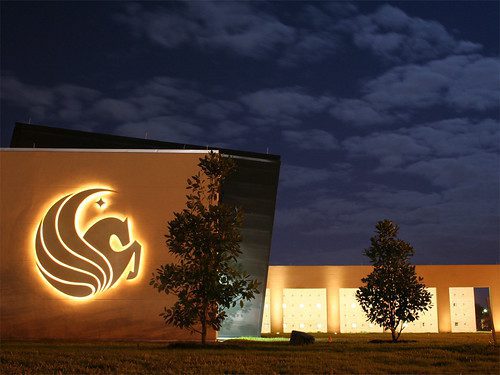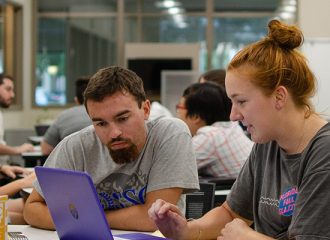By Tiffany Magoutas
Applying to college and finding a community within that college is challenging enough for most people, but imagine if you had to do all of it on your own without knowing if each major decision you make along the way is the right one?
Realistically, none of us truly know which decisions we make will produce the results we desire, but a majority of students are fortunate in that they have at least one parent who went to college and can advise them on which resources to utilize and, sometimes, which major may be more suitable for them. For first-generation college students, these major life decisions can be very challenging and stressful to navigate. As a first-generation college student, I empathize with this sentiment wholeheartedly.
Since starting college, I have always worked part-time (at least 20 hours per week) while enrolling in 12 to 15 credit hours each semester to be able to afford gas and other expenditures I incur as a commuter. I’ve always tried my best to avoid burdening my family financially, which has usually come at the opportunity cost of joining RSOs, attending sporting events, and living the “typical college student life” we’ve seen in movies like The Neighbors. I commute 45 minutes from my house to UCF, so I often opt to leave before peak traffic times and choose to miss networking opportunities on campus, lest my 45-minute commute turn into an hour or more (Although, if UCF were like The Neighbors, I’d trade a speedy commute for a glimpse of Zac Efron).
A study conducted in 2017 by the U.S. Department of Education found, among other trends, that, when compared to their continuing-generation counterparts (students who are not the first-generation college students), more first-generation college students come from lower earning households, leave college due to lack of affordability, and take longer to complete their bachelor’s degrees. These statistics clearly show that first-generation students are at a disadvantage, which is why UCF’s Multicultural Academic and Support Services (MASS) has a First Generation Program.
UCF defines students as “first-generation” if they fit at least one of three criteria:
- Neither of the student’s parent(s) or legal guardian(s) earned a bachelor’s degree;
- The student lives with and received support from only one parent or guardian who did not earn a bachelor’s degree.
- The student was/is a homeless youth, in the foster care system, or a ward of the state.
I was curious to know how other first-generation college students at UCF have navigated their journeys here, and if they’ve used resources on campus that helped them along the way. I interviewed three other first-generation Knights about their stories–each one unique–and their advice to other first-generation students paralleled in many ways.

Benny Tang (Industrial Engineering M.S., B.S.) is in his fourth year at UCF and will complete the accelerated undergraduate/graduate program in Industrial Engineering in Fall 2020.

Autumn McComas (Sports and Exercise Science, B.S.) completed her first bachelors in 2018 and is currently pursuing a second bachelor’s degree in Writing & Rhetoric.

Julian Pollifrone (Writing & Rhetoric B.A., Radio/Television B.A.) is graduating Spring 2020 as a double-major and will have completed his degrees in only four years.
Here were some of their responses to the questions I asked:
Q: Why did you choose UCF?
Benny: My parents immigrated to Florida when I was young, and I chose to stay in-state because of UCF’s affordability and distance from home.
Autumn: I didn’t have a college fund, so after attending community college for two years, I was happy to transfer to UCF after spending my whole life living in a small Florida town.
Julian: I did dual enrollment in high school, and after gaining some experience at a community college, I researched other in-state schools. UCF’s opportunities seemed like the best fit, and I felt confident that I could afford coming to school here.
Q: Why didn’t your parents attend college?
Benny: My parents are from China, and they both started working from a very young age and didn’t even get to finish high school, so college wasn’t an option for them. I was born when they were much older, so I think they just focused on providing for me so that I can have the opportunities they didn’t have.
Autumn: My parents were young when I was born, so I don’t think they considered college as an option, and I don’t think anyone really pushed either of them to attend college. However, after I finished my first degree, I inspired my mom to complete a Business Administration A.S.
Julian: I think my mom wasn’t interested in going to college, and my dad dropped out of high school when his guidance counselors advised him to quit school because his grades weren’t the best. Personally, I believe his guidance counselors failed him because he went on to start a small business.
Q: What were some major challenges/obstacles you’ve faced at UCF?
Benny: Maintaining a decent social life while balancing classes and work was very challenging. I ended up sacrificing having much of a social life because I’ve always been enrolled full-time while working at least 20 hours per week. I think I would’ve enjoyed joining a fraternity or spending more time with friends, but academics and working have been my top priorities from the beginning.
Autumn: I wish I would have had more guidance with how to afford and mentally prepare for college. I didn’t understand student loans, and I never felt like I truly fit in at UCF while I was earning my Sports and Exercise degree. I changed my major several times, and I kind of floated around campus with my friends without understanding the impact of my decisions.
Julian: The biggest challenge I had was choosing the right classes. I didn’t intend on being a double-major when I started, and my advisors recommended some classes that didn’t end up counting toward either of my degrees. With degree requirements and class availabilities changing each academic year, I think UCF could’ve done a better job at training some academic advisors so that other students wouldn’t take unnecessary classes like I did.
Q: What advice would you give other first-generation students, or just students at UCF in general?
Benny: Join RSOs or clubs to network within your major. I joined the Society of Sales Engineers, and I’ve made some friends and attended conferences and competitions that have helped me develop personally and professionally. Also, don’t be like me and focus too much on classes and working. Having fun is important, too; just be smart about it.
Autumn: Learn financial literacy and do enough research about college before you start! It can be very overwhelming and confusing at first, but if you find the resources at your school, you will be very grateful that you didn’t make mistakes with things that can have long-term financial consequences. Also, get a job—any job. Learn the value of a dollar and how to stick to a budget. Third, trust your intuition. Don’t let random people’s opinions influence your major life decisions, but do try to explore outside your comfort zone. Finally, don’t do anything you’ll regret.
Julian: Be open-minded, do your research before making big decisions, take some risks, don’t procrastinate, concentrate on a few goals at a time, and get enough sleep.
To my other first-generation peers at UCF, remember that you’re not alone. Even if you’ve gotten to this point in your life just fine doing things your way (because we’ve all had to overcome some big hurdles already), you may find that some extra help and information is available and can impact you more than you thought possible. I encourage first-generation students to make time to research and visit campus resources like the Career Center, First Generation Knights workshops, and academic advisors.
With over 60,000 students, UCF may not always hold all of the answers to your questions, so if you ever feel like a campus resource isn’t enough, I also advise doing research on other universities’ websites to find other helpful links, talking to older students in the same major, and trying to self-educate as much as possible. No matter what, don’t give up. Charge on.
Photo titled “UCF Progress Energy Welcome Center” by Keone found on Creative Commons.




